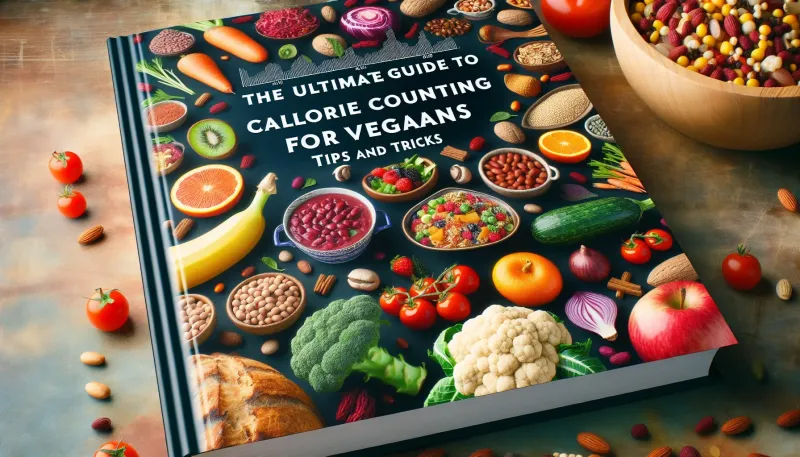The Ultimate Guide to Calorie Counting for Vegans: Tips and Tricks

Discover how to effectively manage calorie counting as a vegan with this comprehensive guide. Learn the best tips and tricks for a balanced diet.
Calorie counting is an essential aspect of maintaining a balanced diet, regardless of your dietary preferences. For vegans, this practice can be particularly beneficial in ensuring that all nutritional needs are met while adhering to a plant-based lifestyle. This article offers a comprehensive guide to calorie counting for vegans, aimed at helping you achieve your health goals.
Understanding Calorie Counting
Calorie counting involves tracking the number of calories you consume through foods and beverages. By understanding your calorie needs, you can manage your weight and ensure that your intake meets your energy requirements. This is particularly important for vegans who need to be mindful of nutrient intake to avoid deficiencies.
Why Is Calorie Counting Important for Vegans?
Vegans often face unique challenges in meeting their nutritional needs. Plant-based diets can be lower in certain nutrients such as protein, iron, and vitamin B12. Calorie counting helps in planning meals that fulfill all dietary requirements while avoiding excessive calorie intake, which could lead to weight gain.
How to Determine Your Calorie Needs
To determine your calorie needs, you must consider factors such as age, gender, weight, height, and activity level. Various online calculators can help you estimate your daily caloric needs. Remember to adjust your intake based on your fitness goals, whether it be weight loss, maintenance, or muscle gain.
Tips for Effective Calorie Counting
Use a Food Diary or App
One of the most effective ways to track calorie intake is by using a food diary or a mobile app. These tools can help log your meals, provide calorie counts, and offer nutritional breakdowns. Popular apps like MyFitnessPal or Cronometer are great for vegans as they often have extensive databases of plant-based food options.
Plan Your Meals
Planning meals in advance can significantly aid in maintaining a balanced diet. Prepare a weekly meal plan that includes a variety of fruits, vegetables, grains, legumes, and nuts. This ensures that you get a diverse range of nutrients while keeping track of your calorie intake.
Be Mindful of Portion Sizes
Portion control is crucial when counting calories. It's easy to overeat even healthy foods like nuts or avocados, which are calorie-dense. Use measuring cups or a kitchen scale to ensure you're consuming appropriate portion sizes.
Incorporate High-Protein Foods
Protein is essential for muscle repair and growth, and for vegans, it can be challenging to get adequate protein. Incorporate high-protein plant foods such as tofu, lentils, chickpeas, quinoa, and tempeh into your diet. These not only help meet your protein needs but also keep you feeling full longer.
Common Pitfalls and How to Avoid Them
Overeating Calorie-Dense Vegan Foods
While avocados, nuts, and seeds are healthy, they are also high in calories. Be cautious with these foods, and consume them in moderation. Balance your diet with low-calorie, nutrient-dense options like leafy greens, vegetables, and berries.
Skipping Nutritional Labels
Nutritional labels provide vital information about the calorie content and nutritional value of foods. Read labels carefully to understand portion sizes and avoid hidden calories, especially in processed vegan foods like snacks and meat alternatives.
Ignoring Liquid Calories
Beverages like smoothies, juices, and vegan milks can contribute significant calories. Track these liquid calories to get an accurate picture of your total intake. Opt for water, herbal teas, or black coffee to minimize extra calories.
Conclusion
Calorie counting for vegans doesn't have to be daunting. With the right tools and strategies, you can manage your calorie intake effectively while ensuring you meet all your nutritional needs. Remember to use food diaries or apps, plan your meals, watch your portion sizes, and incorporate a variety of nutrient-dense foods. By doing so, you'll not only achieve your dietary goals but also maintain a healthy and balanced vegan lifestyle.
Start implementing these tips today and take control of your diet in a way that's both nutritious and sustainable.



























